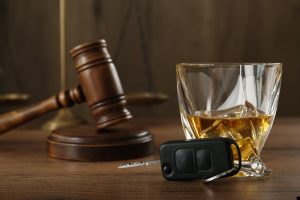Despite Florida’s generally gun-friendly laws, including the recent constitutional carry legislation, airports remain strictly-regulated environments when it comes to firearm possession.
The Fort Lauderdale-Hollywood International Airport offers service to more than 35 million passengers to 135+ destinations annually. There are more than 700 daily flights to and from the airport every single day. According to the Transportation Security Administration (TSA), officers discovered a total of 817 firearms in travelers’ carry-on luggage last year (slightly down from the 834 discovered the year before). Just at FLL, there were 113 unlawfully-carried firearms discovered in 2024 and 135 in 2023. 
Here, Broward criminal defense lawyers delve into the legal implications of unlawfully carrying guns at airports in Florida, relevant state and federal statutes, and the importance of hiring an experienced criminal defense attorney if you find yourself facing charges.
Gun Regulations at Florida Airports
Florida’s gun laws have become increasingly permissive in recent years. As of July 1, 2023, Florida enacted constitutional carry, allowing eligible individuals to carry concealed firearms without obtaining a permit.
However, this right does not override federal restrictions or TSA regulations regarding firearms in airports. It is possible to travel lawfully with firearms, if they’re unloaded, packed in a locked, hard-sided case and placed in a checked baggage. Most problems occur when people try to travel with guns in their carryon luggage.
Under Florida Statute 790.06, there are strict prohibitions on where firearms can be carried, including inside the secure areas of an airport. If you are found in possession of a firearm beyond the security checkpoint, you could face serious charges, including possible felony prosecution under Florida Statute 790.12, which could result in up to five years in prison. Beyond that, federal statute, 49 U.S.C. § 46314, prohibits bringing a weapon, explosive, or incendiary device in a secure area of the airport or onto an aircraft. Violations can result in imprisonment for up to 10 years and fines of up to $14,950. The severity of the charge and subsequent penalty often depends on the intent, how the weapon was carried, and whether there was accessible ammunition. This is one reason why hiring an experienced criminal defense lawyer is so important.
 Fort Lauderdale Criminal Attorney Blog
Fort Lauderdale Criminal Attorney Blog











